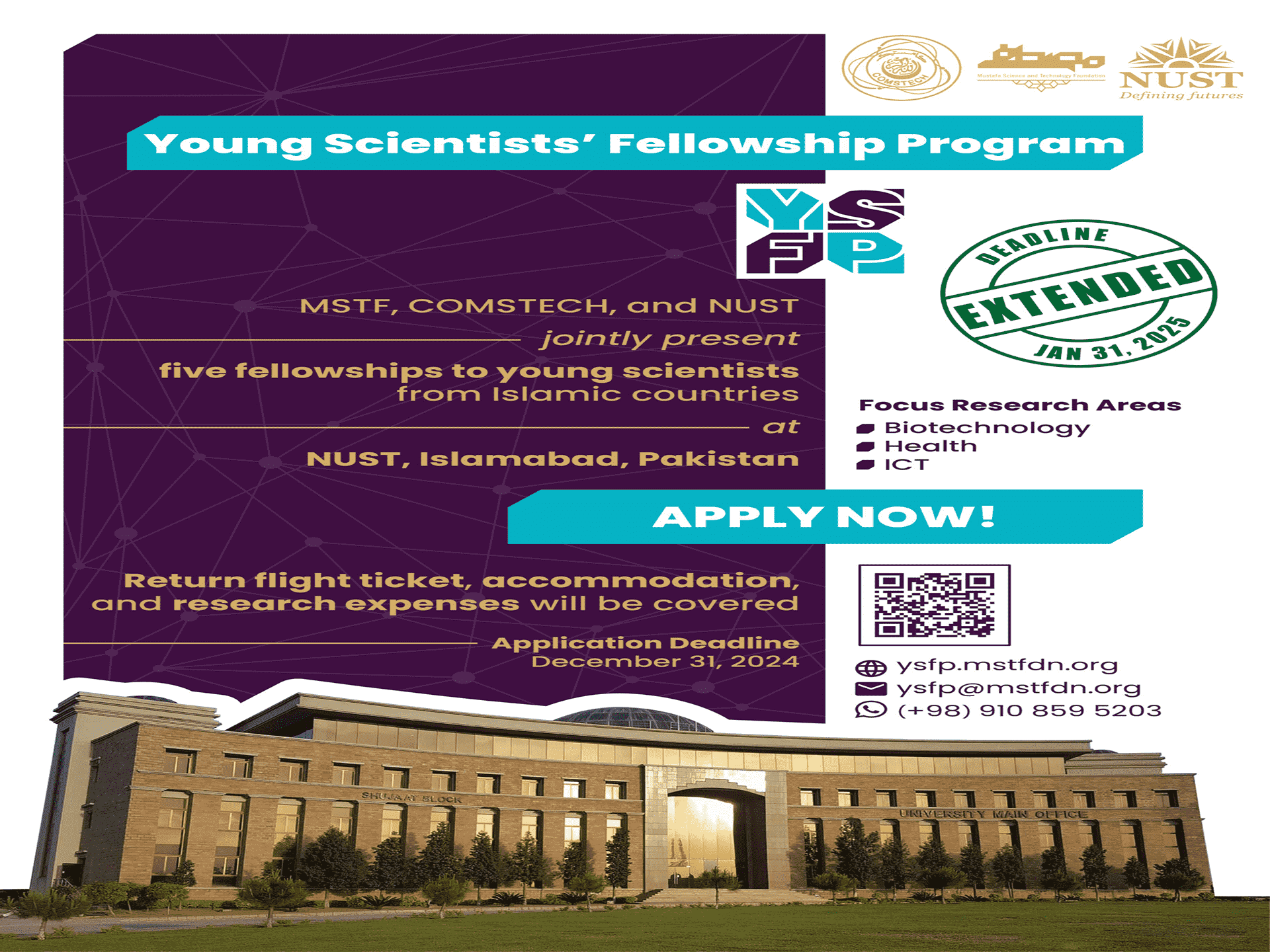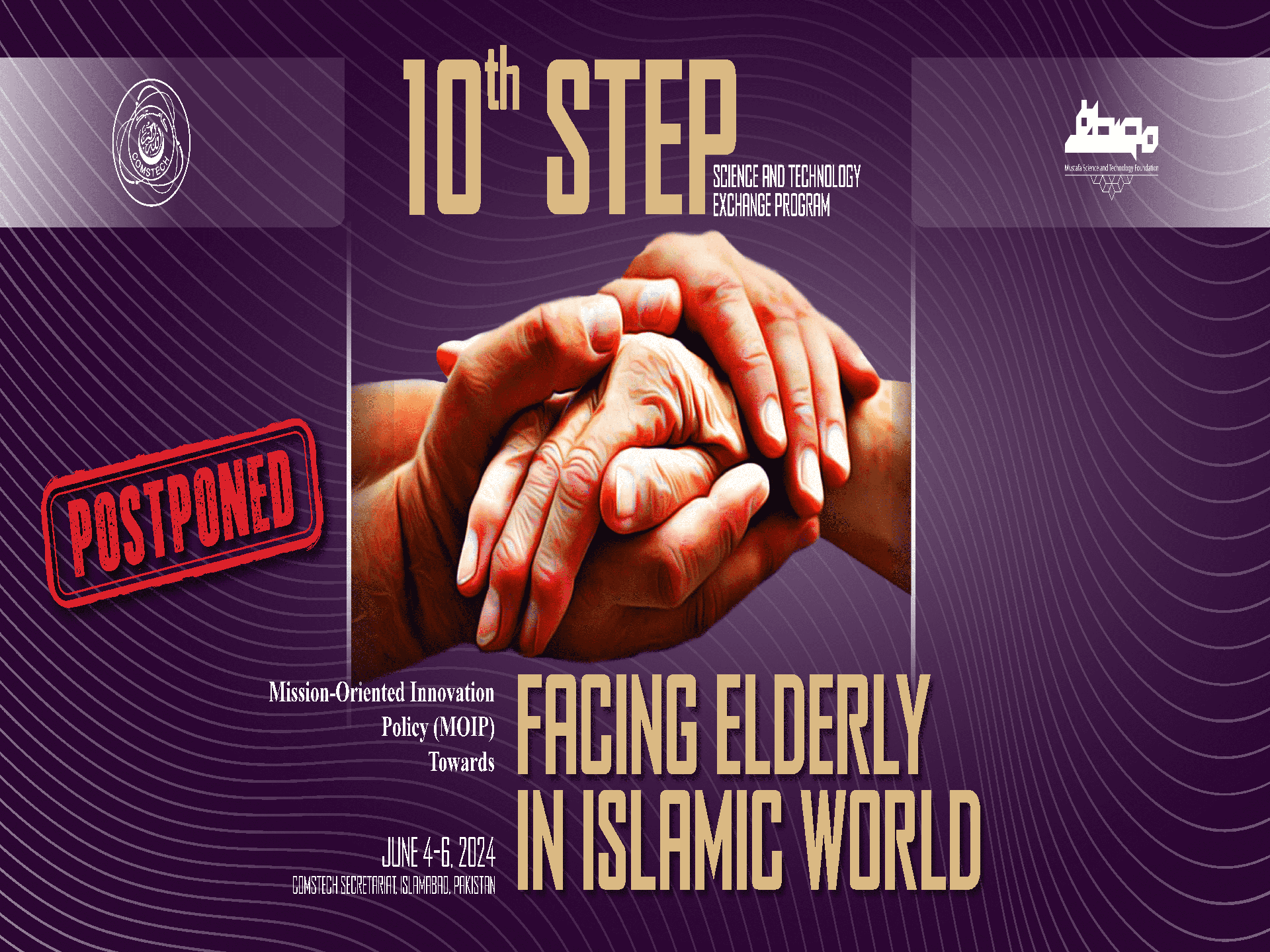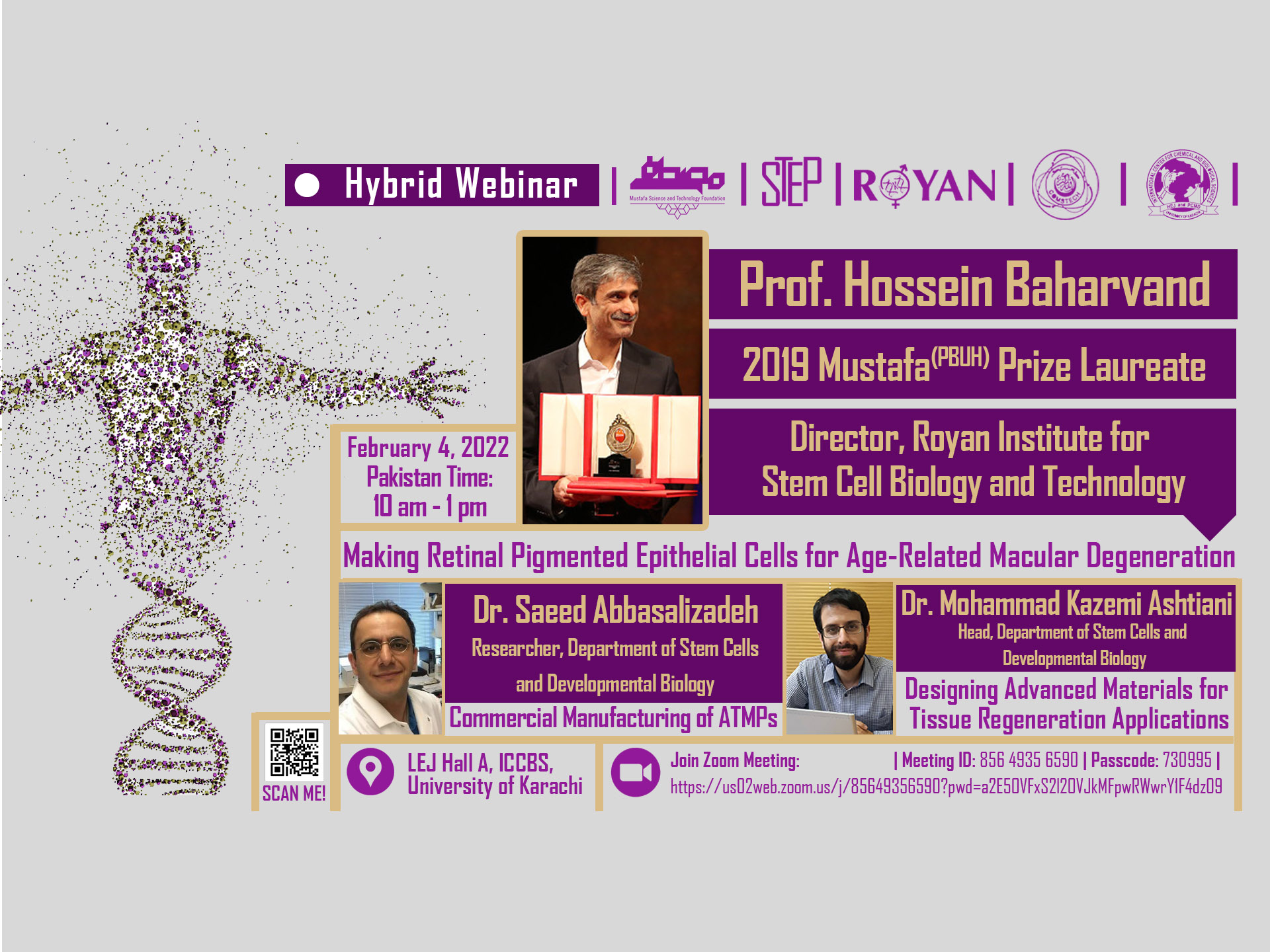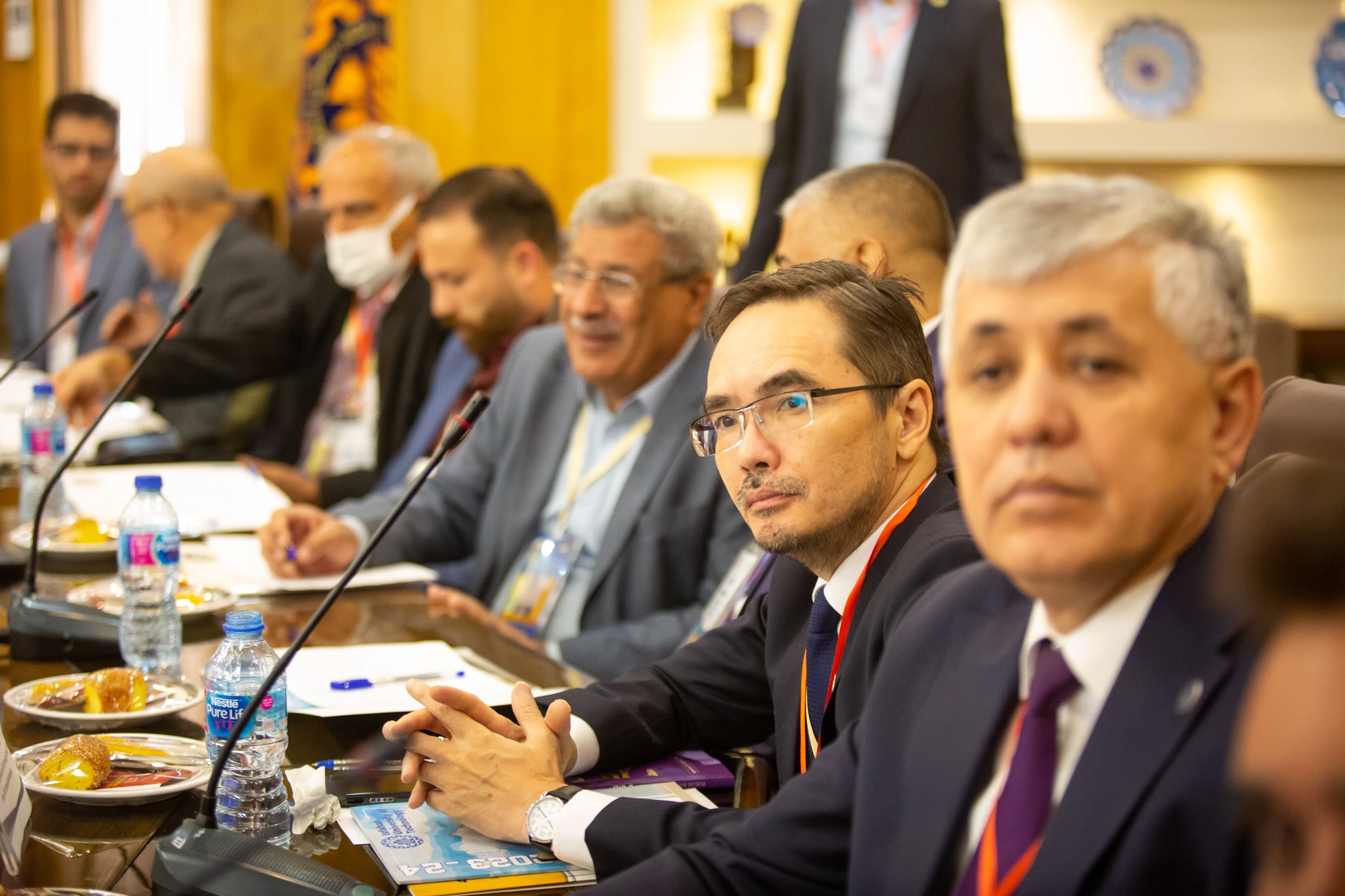.jpg)
2nd STEP
A scientific Network is Evolving in the Muslim world
28 Dec. 2016
In an interview with the Mustafa(pbuh) Science and Technology Foundation (MSTF) Media, Head of the Mustafa(pbuh) Prize Nano-science and Nanotechnology Committee, Ali Beitollahi, has elaborated on the details of a Science and Technology Exchange Program in the Muslim world, dubbed STEP, where he referred to the Mustafa(pbuh) Prize as a much-needed scientific network that connects Muslim scientists from around the world.
MSTF Media reports:
The Mustafa(pbuh) Science and Technology Foundation (MSTF) has taken the next step toward expanding the scope of its activities in the form of a forum, dubbed the Science and Technology Exchange Program among Muslim Countries, known shortly as the STEP. The second round of the STEP was held at the Malaysian university of UPM, on December 19-23.
In an interview with the MSTF Media conducted ahead of the STEP forum, Prof. Ali Beitollahi talked about the goals of launching the STEP and the reason behind choosing the University of UPM as the venue for the first round of the forum.
Here’s a rough transcription of the interview:
- In December, the Mustafa(pbuh) Prize will hold the Nano-science and Nanotechnology Development Forum at the Malaysian university of UPM, under the Science and Technology Exchange Program among Muslim Countries, or what we simply refer to as STEP. In your opinion, what is the importance of this forum?
“There are a number of goals for organizing this forum. One of them is to publicize the aims and perspectives of the [Mustafa(pbuh)] Prize in promoting the collaboration among Muslim scientists living in other countries. It is very important that the Mustafa(pbuh) Prize, its aims, and its activities are introduced to all Muslim scientists across the world. So as the first step we decided to hold this forum in Malaysia as an Islamic country where we also invite scientists from other Muslim countries. We expect to see a large group of scientists from different countries in this workshop. Besides, we invite the laureates of the Mustafa(pbuh) Prize Professor Jackie Y. Ying and Professor Omar Yaghi to this forum.
Professor Omar Yaghi will speak about his research and he will discuss the important issue of how Muslim scientists should focus on the areas that could solve real problems of societies. We will have the opportunity to share ideas to see how we can reinforce collaboration between Muslim scientists from different countries and how the Mustafa(pbuh) Prize can contribute to this process. We can do this with the help of comments and suggestions we receive from participants in this forum.
This event will be held in other countries because the Mustafa(pbuh) Prize does not belong to one country. Instead, it belongs to the whole Muslim community. So we want other Muslim countries to be aware of the opportunity that this prize provides.”
- Is there any specific reason for choosing the UPM as the venue for this forum?
“Actually the University of UPM is now a member of the policy-making council of the Mustafa(pbuh) Prize. We welcome any candidacy from institutions across the Islamic world to participate in this activity. This is just a starting point in Malaysia. We would be very pleased to see other universities and countries to become candidate for this event in the near future.”
- Do you think that the STEP forum will help find new scientists who have the potential to contribute to science and also nominate for the Mustafa(pbuh) Prize?
“I’m sure [it does]. As I mentioned, these are the aims of the Mustafa(pbuh) Prize to consider the areas we refer to as the boundaries of science and technology [and also] the feasible and tangible outcome of the work should be considered. For sure, both on the scientific side and the technological side, the Mustafa(pbuh) Prize is considering doing so.”
- The Mustafa(pbuh) Prize was launched at a time when the contributions of Muslim scientists to science and technology are usually not noticed. Do you think the Mustafa(pbuh) Prize can compensate for this lack of attention?
“I want to emphasize that the major aim of the Mustafa(pbuh) Prize is to recognize the most prominent scientific or technological outcome of researches in the Islamic world and also those well-known Muslim scientists who live in one of the Islamic countries throughout the world. It is very important that we provide a platform for such prominent scientists to be recognized by the world scientific societies or major international bodies. So, one of the aims is to show the importance of such prominent work which has some feasible outcome which could solve some problems related to societies either in regional or international level. This platform helps this process. The Mustafa(pbuh) Prize in fact tries to emphasize on such activities of Muslim scientists throughout the world.”
- How can the Mustafa(pbuh) Prize help advance science and technology in the Muslim world?
“The Mustafa(pbuh) Prize tries to build a network for scientists within the Islamic world to conduct their research in a focused manner on the subjects that could have valuable outcome for a broad range of societies. As I mentioned, there is a lot of emphasis on the outcome of the work. It is not just based on the outcome of publications. Although publications are very important, but the main issue is that the outcome of researches and technologies should be of the value to help solve some [real] problem in our societies.
We also want to work on another issue and initiate the idea of focused research with tangible outcome for the society. This is a sad story that unfortunately in most Islamic countries we see a lot of scattered research that normally cannot result in well-defined applications, technologies, or solutions for human being. So the Mustafa(pbuh) Prize is putting a lot of emphasis on focused research that could lead to some definite outcome which could solve problems of societies. Then, in the long run, scientists for sure will stick to this approach in order to be recognized by the Mustafa(pbuh) Prize






